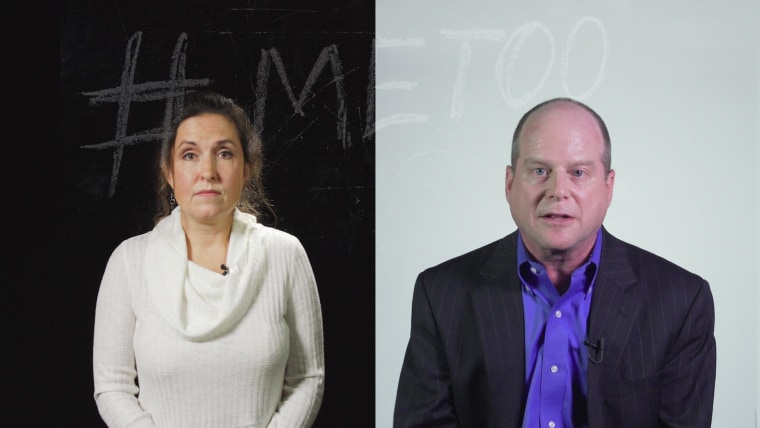When the jury found Harvey Weinstein guilty of rape on Feb. 24, I was stunned. It just didn’t seem possible until it happened. While the past two years has seen a cultural shift in how survivors of assault are treated, understood and believed, it was still hard to imagine a world where a powerful, wealthy man like Harvey Weinstein could be sentenced to jail for rape.
On Wednesday, when the judge sentenced him to 23 years in prison, overwhelming relief washed over me. Harvey was going to jail and wouldn’t be free for a very long time. And with this came a bittersweet feeling: one of mourning what was lost and simultaneously celebrating a truly historic victory.
Get the think newsletter.
Leading up to his conviction and sentencing, I was having a hard time imagining what it would feel like to see justice on a personal level. My assault by Weinstein 22 years ago at the Cannes Film Festival was a devastating and life-altering event. Like many survivors, I have carried the cost of that crime with me throughout my life. The shame and trauma of my experience, along with the loneliness and isolation of having kept silent for so long, were a heavy burden. And while I have experienced a great deal of healing and empowerment by speaking out more recently, I knew that a not guilty verdict would be a setback for me and all the other women who have come forward about Weinstein’s crimes.
The week of jury deliberations brought a roller coaster of emotions, particularly when the jury asked the judge whether it could deliver a partial verdict before adjourning for the weekend, indicating that it had reached a consensus on some of the lower charges but was deadlocked on the biggest ones. That had my heart pounding. Would the jurors be able to reach a unanimous decision on the most serious charge, predatory sexual assault? And if they couldn’t, would that jeopardize any determinations on the other charges? What would be the outcome on the lesser charges?
It was an agonizing wait, and I was in constant conversation all that weekend with others who were assaulted by Harvey to whom I’ve become close. While we were hoping for the best, we couldn’t help but prepare for the worst. Especially in this case, in which the women’s stories did not adhere to common (mis)conceptions of what rape looks like or how victims act in the aftermath of an attack: These were women over whom Harvey wielded his figurative power, rather than a weapon or a show of intense physical force, and after their assaults, they had ongoing consensual relationships with him. While I was committed to the belief that a guilty verdict in a case such as this could and should happen, would today be the day?
And if it wasn’t, the damage could be long-lasting, particularly after Donna Rotunno and her defense team loudly proclaimed that the #MeToo movement had gone too far and that our stories weren’t credible. She argued that by going to a hotel room or a party, we knowingly put ourselves in the position to receive sexual advances and accusations that our assaults were reimagined consensual encounters. Indeed, a not-guilty verdict could see the #MeToo backlash gain momentum: It could reinforce the age-old societal norm that a woman’s pain is less important than a powerful man’s career or declarations of innocence, and it could lessen survivors’ chances of being believed or seeing a measure of justice going forward.
So when the guilty verdict came in on that fateful Monday morning, I was wholly unprepared to hear the news. I was astounded — in shock and full of emotion all at the same time. All of a sudden it was real. This man who hurt me and so many others was actually going to jail. As tears began streaming down my face, I was immediately flooded with phone calls and texts. I did my best to stay focused, because I very much wanted to use my voice to let anyone who was listening know how important this verdict was for me, for the many other women Harvey had harmed and for survivors everywhere.
Since then, I’ve had time to let it sink in. My heart has been full with deep feelings of gratitude that I’m able to experience closure on something so personally painful. And I’m still astounded by what an absolute game-changer this historic verdict is. It expands the possibilities to successfully prosecute sex crimes in a court of law, and I believe that going forward prosecutors will take on more of these cases, particularly once Weinstein’s trial in Los Angeles also concludes.
With Wednesday’s sentencing, I have a renewed sense of hope and faith that more women will find the courage to come forward with their stories of assault, that they will be believed and that their abusers will be punished. We have arrived at a profound moment in history, and I am certain that moving forward, the world will be a different place for survivors of sexual assault and a safer place for all.












